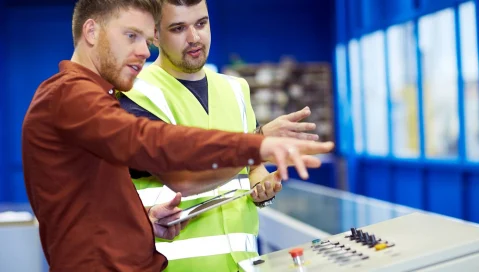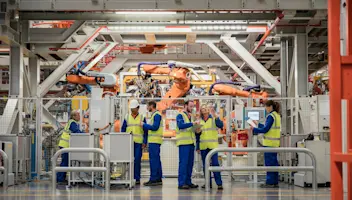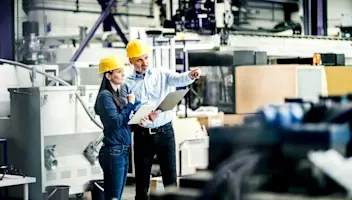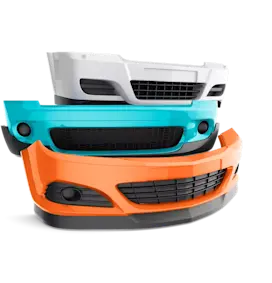Increasing Interest in Modern Manufacturing
Increasing Interest in Modern Manufacturing
Increasing Interest in Modern Manufacturing
26 Sept 2018
Aptean Staff Writer
Summer is officially over, and the kids are settled in their school routines. For parents of high school seniors, there may be concern about “what’s next?” We want them to find a career that will not only pay well, but also be interesting and challenging. Is your child interested in pursuing a high-tech career? Software engineer? IT networking? What about an exciting, high-tech job in manufacturing?
According to research by Deloitte, 80 percent of Americans surveyed view manufacturing as vital to maintaining economic prosperity, yet less than 30 percent would encourage their children to pursue a manufacturing career. They cite concerns about job stability and the perception of the industry.
We need to correct those misperceptions, raise awareness, and create interest in this exciting industry.
Misconception: Manufacturing jobs don’t pay well
The average annual salary in manufacturing is over $64,000. Expanding compensation to include benefits such as paid time off, health care, and retirement plans make manufacturing jobs even more attractive.
Manufacturing provides opportunities for every education level from a high school diploma to advanced degrees. Apprenticeships are a great way for students to earn money in manufacturing positions as they learn valuable skills. The number of registered apprentices has increased 42 percent in four years, and the number of active programs has increased 16 percent. Technical schools and certification programs can provide the necessary education without the student loan debt of a four-year degree.
Misconception: Manufacturing environments aren’t safe and clean
Today’s factories employ sophisticated technology to increase productivity and operational efficiencies, which has transformed the environment on the shop floor. Manufacturing is a leader in reducing greenhouse gas emissions, with a 13 percent decline since 1990. Even as production increases, energy efficiency and sustainability initiatives continue to lower manufacturing’s impact on the environment.
Workplace safety initiatives are another important aspect of modern manufacturing. Safe practices increase productivity and efficiency by reducing time away from work, as well as improving morale. Between 1996 and 2016, the rate of nonfatal occupational injuries and illnesses declined 66 percent, from almost 11 incidents per 100 workers to less than four. Modern manufacturing is also exploring how innovative technology can impact safety as well as production. Augmented reality and wearable devices provide a wealth of information while allowing workers to keep their hands free. IoT sensors and drones allow access to more hazardous areas of a facility so that workers are protected and equipment is still monitored.
Misconception: Manufacturing jobs aren’t interesting
With the evolution of smart manufacturing and Industry 4.0, companies are moving towards a new level of interconnected and intelligent systems that incorporate sensors, robotics, big data and machine learning.
These innovations require highly skilled workers. Modern manufacturing demands computer skills, problem solving skills, technical skills and math skills. Unfortunately math and science assessments indicate that U.S. students continue to rank behind many other advanced nations. Students need to be exposed to science, technology, engineering and math (STEM) in middle school, paving the way for high school and college courses that will lead them to a wide range of positions in the industry.
Misperception: Manufacturing jobs aren’t available
The forecast for U.S. manufacturing is strong; the sector is projected to grow an average of 2.8 percent for the 2018-2021 period. An estimated 3.5 million manufacturing jobs will become available by 2025, yet up to 2 million of those jobs are projected to go unfilled.
The reason is a talent shortage, caused by a skills gap and an interest gap. This deficit is the most important hurdle to overcome. Manufacturing Day was created as a way to introduce students to modern manufacturing. But let’s not limit our efforts to a single day; we have an opportunity every day to share the impact that manufacturing has throughout our communities.
The future is now! Spread the news!
Manufacturing needs new talent; the average age of a highly skilled manufacturing worker is 56. The industry is experiencing an explosion of technological advances that demand equally advanced skills. Millennials and Gen Z grew up with computers and the internet, with technology at their fingertips. They have the creativity and tech savviness to fill the talent gap in modern manufacturing. The more involved we become, the more we can generate awareness about manufacturing, and the more talent we can attract to fill those waiting positions.
Related Content





Commencez à transformer votre entreprise dès aujourd'hui
Prêt à faire passer votre entreprise à la vitesse supérieure ? Nous sommes là pour vous.



